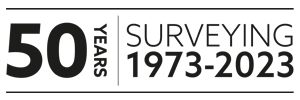 Our Chartered Surveyor Degree Apprenticeship within Quantity Surveying has been designed for those who are already within the industry that wish to develop their skills and knowledge and for those new to the industry who wish to qualify as a Chartered Surveyor whilst working full time.
Our Chartered Surveyor Degree Apprenticeship within Quantity Surveying has been designed for those who are already within the industry that wish to develop their skills and knowledge and for those new to the industry who wish to qualify as a Chartered Surveyor whilst working full time.
The Quantity Surveying apprenticeship pathway has been specifically developed by Northumbria University and the Royal Institution of Chartered Surveyors (RICS), alongside industry and partner education providers to address current skills gaps within the profession. Following recent consultations with all relevant partners the programme has been re-designed to meet the developing needs of quantity surveying degree apprentices, their employers and the sector as a whole. The programme has been designed to suit a national market with the lecture content delivered online. When it is safe to do so there will be no more than 3 days of attendance per calendar year at regional hubs across the UK.
The apprenticeship combines vocational skills and workplace practice with academic, research-rich learning to give students the knowledge and experience that employers and the industry need.
This apprenticeship will give apprentices the ability to cost building designs, manage the procurement of resources and all financial matters associated with construction projects as well as the skills and ability to negotiate effectively with partners. They will be able to apply their academic knowledge and research skills to the quantity surveying issues encountered daily within your working life.
Accredited by the Royal Institution of Chartered Surveyors (RICS) and Chartered Institution of Civil Engineering Surveyors (CICES) for the purpose of eligibility to apply for Graduate Membership.
Apprenticeship programmes at Northumbria University are designed to support apprentices in acquiring the appropriate and needed knowledge, skills and behaviour and retain the integrity of the apprenticeship standard as defined by IFATE. For further details please consult the IFATE Apprenticeship standards / Institute for Apprenticeships and Technical Education webpage here.
The programme will take four years to complete the academic award and typically a further six to twelve months post-graduation to complete the End Point Assessment (EPA) of the Degree Apprenticeship. The EPA of this programme is the Assessment of Professional Competence of the Royal Institution of Chartered Surveyors (RICS).
*Northumbria University also offers the Construction Quantity Surveyor Degree Apprenticeship, designed to train those in predominantly contracting Quantity Surveying roles. It takes four years to complete this academic award and typically a further six months to complete the End Point Assessment (EPA) of the Degree Apprenticeship. In this case, the EPA is only partly representative of the review process required for chartered status of industry recognised institutions such as the Chartered Institution of Civil Engineering Surveyors (CICES) and the Royal Institution of Chartered Surveyors (RICS), so additional preparation and payment would be required to apply for professional registration.*
Please note we also have a full time Quantity Surveying BSc available.



 Option for Placement Year
Option for Placement Year Option for Study Abroad
Option for Study Abroad


 Our Chartered Surveyor Degree Apprenticeship within Quantity Surveying has been designed for those who are already within the industry that wish to develop their skills and knowledge and for those new to the industry who wish to qualify as a Chartered Surveyor whilst working full time.
Our Chartered Surveyor Degree Apprenticeship within Quantity Surveying has been designed for those who are already within the industry that wish to develop their skills and knowledge and for those new to the industry who wish to qualify as a Chartered Surveyor whilst working full time.

















